
Sensing vs intuition differing Personality psychology, Myers briggs
In a nutshell, the difference between Sensors and Intuitives is this: Sensors prefer tangible information, whereas Intuitives prefer speculation and depth of insight.

Intuitives vs Sensors (Infographics) mbti intuition sensors sensing
An intuitive person thinks abstractly instead of on the details of a situation. Philosophers could be intuitive, thinking about implications and possibilities instead of details. What is the.

Sensing vs. Intuition Judging vs perceiving, Personality psychology
You use Sensing (S) and Intuition (N) to receive and process new information either by using your five senses or in more abstract ways. Sensing and Intuition are opposite preferences. A person's natural tendency toward one will be stronger than the other. There are by far more Sensing people in the population than Intuitives.
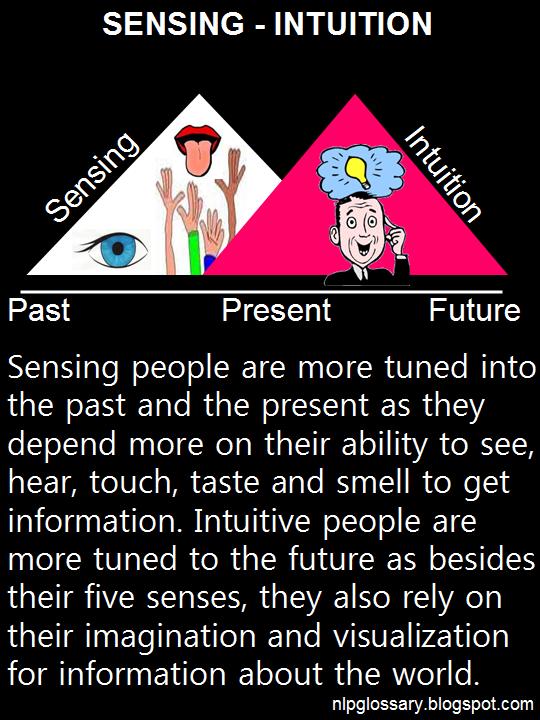
NLP GLOSSARY MBTI Sensing and Intuition
The Myers Briggs Type Indicator (MBTI) personality test and framework have popularized the concepts of extroversion, introversions and the cognitive processes that you probably have heard of: Thinking vs Feeling, Intuition vs Sensing. However, these concepts were first introduced in the early 20th century by Carl Gustav Jung (1875 - 1961), a famous Swiss psychiatrist…

MyersBriggs’ Sensing vs. Intuition Explained I Indeed Career Quick
Core Theory Mind: Intuitive (N) vs. Observant (S) Thought at Every Scale Our second personality scale includes the Intuitive (N) and Observant (S) styles. These traits describe what people are more likely to do with the information gathered from the world around them.
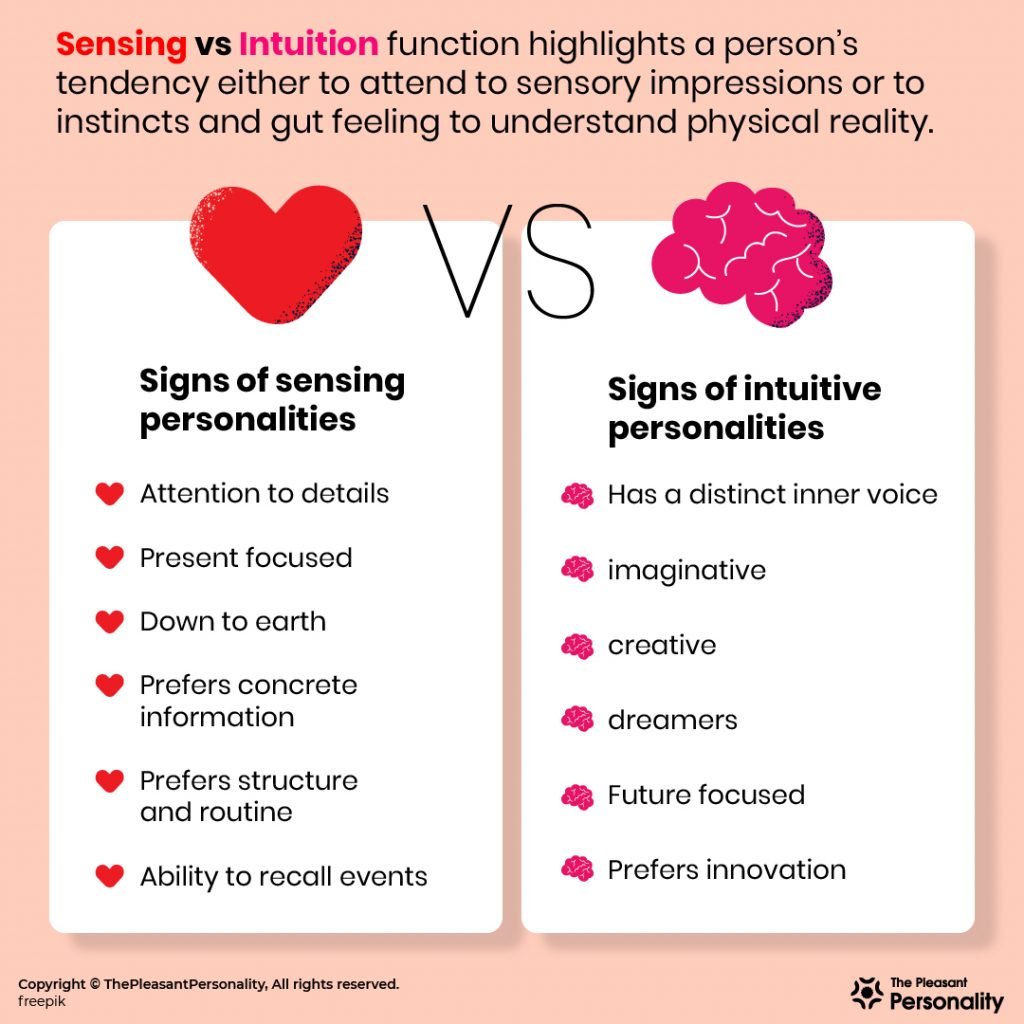
MBTI Understanding Personality Types
Personality Traits: Intuitive Vs. Sensing There are 8 Sensing Personality Types and 8 Intuitive Types. Sensing vs Intuition Examples Examples of Sensory Behavior Examples of Intuitive Behavior The sensing personality types include: The intuition personality types include: Why do you need to know if your personality is sensing vs intuitive?

Sensing (S) VS Intuition (N) S Vs N In MBTI By Asma YouTube
Created by renowned psychiatrist Carl Jung and popularized since the 1940s, the Myers-Briggs Type Indicator (MBTI) uses tailored questions to find your combination of four sets of opposing traits: introverted versus extroverted; sensing versus intuitive; thinking versus feeling; and perceiving versus judging.

Sensors vs Intuitives Here are the main differences in communi
In Myers & Briggs' personality typing, the Sensing/Intuition dichotomy describes how a person takes in information, whether through sensory-based experiences or by intuitively recognizing factual patterns and connections. Find your type

MBTI The 8 Mental Functions Demonstrated Sensing and Intuition YouTube
Your highest percentages from the MBTI test are indicative of your dominant function. Every person has four functions based on the final score they receive from taking the test. People are either dominated by their sensing-to-intuition spectrum or their feeling-to-thinking spectrum.
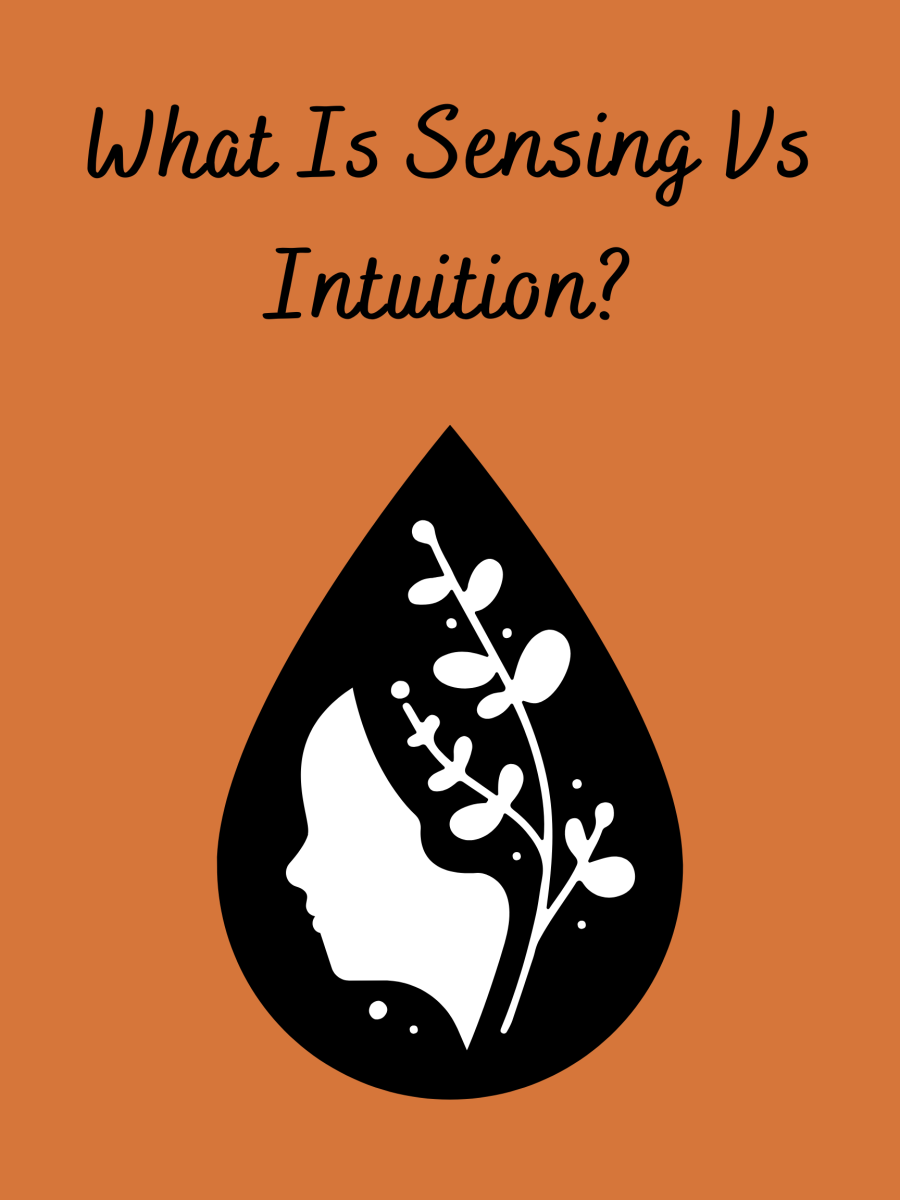
Breaking Down Myers Briggs What Is Sensing vs. Intuition? Owlcation
Intuition and sensing are two contrasting cognitive functions that form part of the Myers-Briggs Type Indicator (MBTI) personality framework. These functions shape how individuals perceive and process information, make decisions, and interact with the world around them. While both intuition and sensing are essential for human cognition, they operate differently and can significantly impact how.

Sensing Vs Intuitive Personality Type liveboldandbloom
Do you prefer to focus on facts and details or patterns and possibilities? This is the question that the Sensing or Intuition preference pair of the MBTI personality type helps you answer. Learn more about how these two ways of perceiving the world affect your behavior and communication.

Pin by Amanda Le on MBTI Mbti, Intuitive personality, Sensing vs
An S/N Example From My MBTI® Certification: Why Do Sensors and Intuitives Annoy Each Other? Sensors Focus On What Is Known While Intuitives Focus On What Is Unknown Why These Conversation Styles Can Cause Annoyance: The Sensing/Intuitive Difference in Relationships: So Can Intuitives and Sensors Have Happy Relationships?
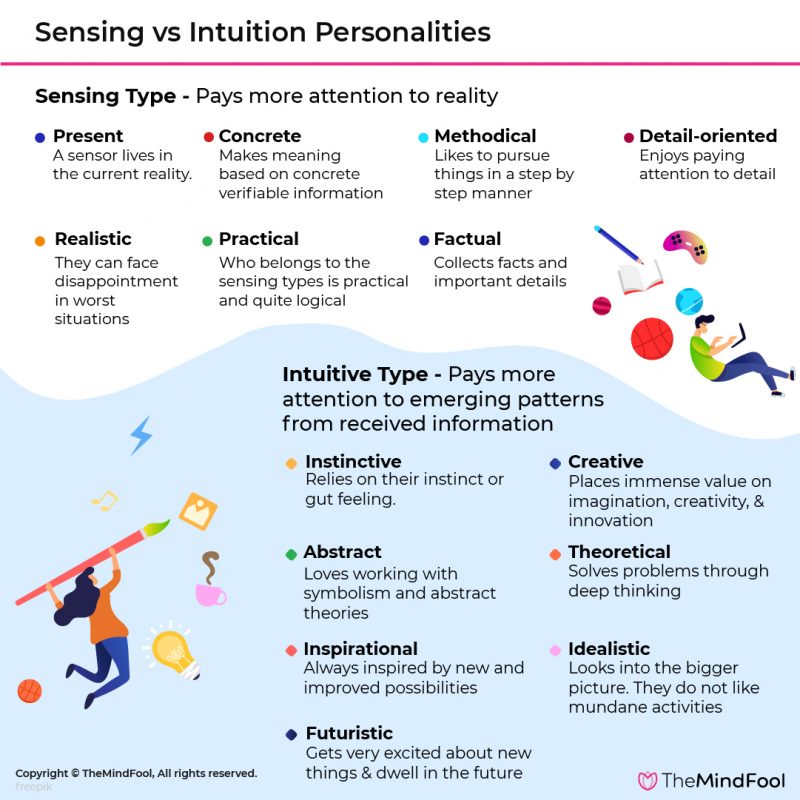
Sensing vs Intuition Intuitive Personality Sensing Personality
Sensing types tend to pay attention to their immediate impressions, while Intuitive types are more inclined to believe in patterns, impressions, ideas, and future possibilities. Sensing types are present-focused and pay attention to details. They are practical and go by their senses when receiving outside information.

Sensing vs Intuition in 5 Minutes [5 Minute MBTI] YouTube
By Dr. A.J. Drenth. One of the primary dichotomies in the Jungian personality taxonomy is intuition (N) vs. sensing (S). It is sometimes cast as a preference for the "big picture" (N) vs. details (S), theory (N) vs. practice (S), or abstract (N) vs. concrete (S) matters. While each of these is relevant and appropriate in its own way, in.
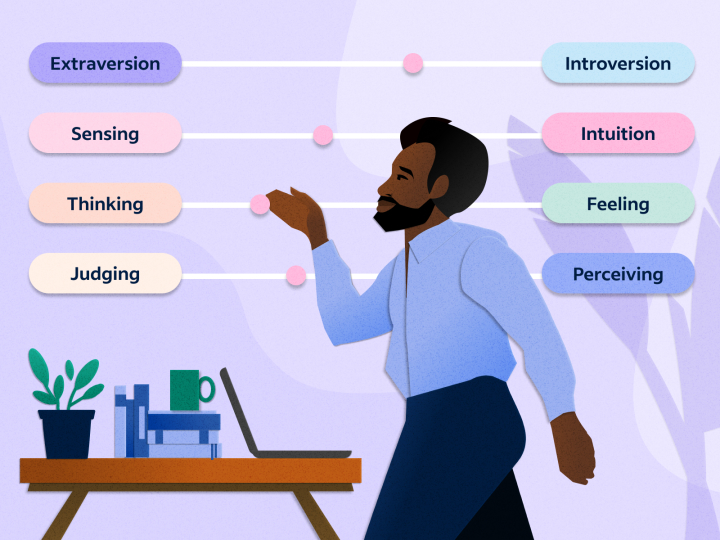
The 16 MyersBriggs Personality Types in the Workplace
It means that you tend to: GRAY AREA. If you scored 0-83, you are closer to INTUITION, and if you scored 84 or more, you are closer to SENSING. However, your answers suggest that you use both preferences quite often. If you are trying to identify your four-letter type, consider both options.

Difference Between Sensing and Intuition
What makes you a sensor versus an intuitive? Let's explore, in detail, the ways in which each type interacts with the world around them. S Is For Sensing Those with personalities dominated by the sensing approach are known as sensors.